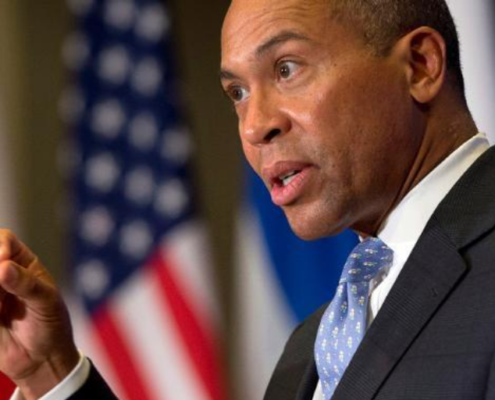
MBTAAnalysis: A look inside the MBTA
0 Comments
/
The MBTA shuttles over a million passengers a day around Greater…
 https://pioneerinstitute.org/wp-content/uploads/CloseupClock-1.jpg
739
1244
Mary Connaughton
https://pioneerinstitute.org/wp-content/uploads/logo_440x96.png
Mary Connaughton2017-02-20 12:34:192017-02-21 09:47:58The Clock is Ticking…….
https://pioneerinstitute.org/wp-content/uploads/CloseupClock-1.jpg
739
1244
Mary Connaughton
https://pioneerinstitute.org/wp-content/uploads/logo_440x96.png
Mary Connaughton2017-02-20 12:34:192017-02-21 09:47:58The Clock is Ticking…….
Rolling the Retirement Dice: Why the MBTA Should Steer Clear of Pension Bonds
This study illustrates why issuing pension obligation bonds (POBs) to refinance $360 million of the MBTA Retirement Fund’s (MBTARF’s) $1.3 billion unfunded pension liability would only compound the T’s already serious financial risks.

Massachusetts’ Skyrocketing Unfunded Pension Liability
Despite several reform bills targeted at the Commonwealth of Massachusetts’s public pension system in recent years, the unfunded actuarial accrued liability (UAAL) has continued to rise and is drawing closer to a crisis level.

The Bay State’s Public-Pension Complex: Costly and Unaccountable
This report finds that Massachusetts' 102 local systems (84 municipal, 12 regional and 6 “special” such as MHFA and Massport) have average per-member administrative costs that are at least triple those of the Massachusetts State Employees’ Retirement System (MSERS), with many that are far higher.

Forensic Mysteries from the MBTA Retirement Fund’s Actuarial Reports
This report documents significant deficiencies in the actuarial valuations produced by the Massachusetts Bay Transportation Authority Retirement Fund (MBTARF) since 1990. Analysis of about a quarter-century of data suggests that the MBTARF's actuarial reports may have deviated considerably from the true cost of pension benefits. As of yearend 2015, the fund had an estimated unfunded liability of about $944 million.

Massachusetts Public-Pension Investment Reform
The commonwealth should set a five-year deadline for 102 public pension systems to transfer their assets to the Pension Reserves Investment Management (PRIM) Board, the management authority for the Massachusetts State Employee Retirement System (MSERS) and the Massachusetts Teachers Retirement System (MTRS).

Fixing the MBTA Retirement Fund: Reforming a Pension Fund in Crisis
This report examines the MBTA Retirement Fund's unfunded liability and compares MBTA and state employee and employer retirement contributions. It recommends that the MBTA assess the feasibility of moving its employees out of the Social Security system and transfer investment management responsibility for its pension fund to the commonwealth’s Pension Reserves Investment Management board as initial steps toward terminating the MBTA Retirement Fund (MBTARF).

The Reckless Cost of Investment Mismanagement at the MBTA Retirement Fund
This report illustrates that had MBTA Retirement Fund (MBTARF) assets been placed in the Massachusetts state pension fund at the end of 2000, their value would have been an estimated $902 million greater by 2014 and T pensions would have been about fully funded.

MassPensions.com Update on Public Retirement Systems
Pioneer Institute is releasing an update to MassPensions.com with new data from the Public Employee Retirement Administration Commission about the status of the 105 Massachusetts public pension systems at the beginning of 2014. Retirement boards have continued on their path of lowering assumed rates of return (ARRs) towards more reasonable levels. However, funding progress for most systems remained stilted, as 22 local boards extended their funding deadlines by up to eight years.

The Logic of Pension Valuation II: A Response to Andrew Biggs
For quite a few years now, public pension liabilities have been a growing concern for policymakers and public finance professionals. The methods used to value the liabilities are fundamentally important both for designing plan policies and for plan administration. They are an essential tool for budgeting because they help account for the costs of public services and create appropriate funding schedules for plan contributions to ensure the fiscal soundness of both the plan and its provider.

Market Rates of Return for Effective Financial Management
The discount rates used by defined-benefit pension systems to value their liabilities and to determine annual contributions have long been a point of concern and contention. Until 2014, governmental accounting standards required that pension funds use the assumed rate of return (ARR) on their portfolio as the discount rate for both management and reporting purposes. With the implementation of Statement 68 of the Governmental Accounting Standards Board (GASB), the ARR will be applied as a discount rate only on the portion of liabilities covered by existing assets, but it will remain a critical metric for many institutional investors.

The Good, the Bad and the Ugly Eight Patrick Administration Budgets Later
Has Massachusetts made progress towards providing a better quality of life for its residents while maintaining financial stability over the past decade or so? In July 2014, Governor Deval Patrick signed into law the eighth and final budget of his administration with only a few vetoes and recommendations to the General Court. Five years after the financial crisis, this is an opportune moment to review and reflect upon the fiscal state of Massachusetts and what has changed since the beginning of this governorship more than seven years ago.

Hard Lessons for Institutional Investors from the MBTA Retirement Fund
This study presents the MBTA Retirement Fund (MBTARF) as a cautionary tale for institutional investors not merely with the benefit of hindsight, but as its story unfolds towards what will likely be an unfortunate conclusion.

Testimony Before the Joint Committee on Public Service Regarding the MBTA Retirement Fund
Testimony Before the Joint Committee on Public Service Regarding the MBTA Retirement Fund Provided in February 2014.

Solvency and Insolvency of the MBTA Retirement Fund
The primary goal of this policy brief is to evaluate the insinuation that MBTARF is in a position to fulfill its obligations to its beneficiaries without help from the commonwealth.

Myths and Reality about MBTA Pensions
For the past few years, officials from the Massachusetts Bay Transportation Authority (MBTA) and the MBTA Retirement Fund (MBTARF) have promoted the narrative that the T's pension system has been reformed so that benefits are "fair" and it holds no risk for taxpayers.

Testimony before the Joint Committee on Public Service of the General Court of the Commonwealth of Massachusetts Regarding the Fiscal Condition of Local Retirement Systems
Testimony before the Joint Committee on Public Service of the General Court of the Commonwealth of Massachusetts Regarding the Fiscal Condition of Local Retirement Systems provided in January 2014.

The Costs of Delaying the Funding of Public Pensions in Massachusetts
The purpose of this paper is to provide tools to quantify the costs of delaying the funding of pension obligations – those incurred in the aftermath of the financial crisis as well as projected costs more generally. Policymakers should be aware of these implicit costs when making budgetary decisions, and so should taxpayers, who ultimately are liable for what essentially amounts to a long-term financing cost for current spending.

The Logic of Pension Valuation: A Response to Robert Novy-Marx
In a recently published article,1 Robert Novy-Marx identifies what he believes are inconsistencies in the valuation methods espoused by the Governmental Accounting Standards Board (GASB). He advocates that current GASB methodologies for determining the discount rate be replaced by what some academic economists call a “fair-value” or “risk-adjusted” rate of return.

Have the MBTA’s Retirement Plans Gone Off the Rails?
The goal of this report is to highlight developments at the MBTA and MBTARF and outline a path towards improved transparency and accountability in order to secure employees’ benefits at a reasonable cost to MBTA riders and Massachusetts taxpayers.

The Cost of Cost-of-Living Adjustments in Massachusetts Public Retirement Systems
While the recent pension reforms focused primarily on reducing the cost to the government, one component of the changes had the opposite effect: the legislation allowed local retirement boards the option of offering retirees a larger annual cost-of-living adjustment, or COLA. While Massachusetts has made its COLAs more generous, many retirement systems around the country have been reducing COLAs to save money.

Do We Need Them? How Many Retirement Boards Are Necessary to Provide Pension Benefits for Massachusetts Public Employees
Currently, there are 103 municipal, regional and agency retirement systems for public employees in Massachusetts, each administered by a five-person board and various numbers of board staff.

MassPensions: How Difficult Is Institutional Transparency?
This policy brief introduces the MassPensions data accessibility tool by Pioneer Institute. MassPensions is a website presenting in clear and convenient format key data about the state of public employees' pensions in the Commonwealth of Massachusetts for the period 1985-2012. The low cost and fast turnaround of this project illustrate that government transparency is not always as complicated or expensive as it may seem.

Improving the Investment Performance of Massachusetts Pension Funds
The adoption of these reforms can significantly improve the performance of retirement systems statewide and reduce the costs of funding public pension benefits. Investment and payment planning will be facilitated by more predictable cash flows from investing activities, helping avert potential liquidity crises.

Fiscal Implications of Massachusetts’ Retirement Boards’ Investment Returns
Throughout the US, the number and scope of defined-benefit pension plans have been on the wane for over a quarter century. Many private-sector workers have had their benefits wiped out by bankruptcies and fire sales of distressed businesses despite the legislative push from pay-as-you-go to fully funded pension plans.

The Elephant in the Room: Unfunded Public Employee Health Care Benefits and GASB 45 Public Employee Benefits Series: Part 3
This paper will review Statement 45’s potential impact on governments and review existing disclosures in financial reports as well as bond offering statements. The paper will discuss the Statement’s impact on budgets and governmental operations, including collective bargaining. Funding options under Statement 45 will be detailed, including the advantages and disadvantages of irrevocable trusts and OPEB bonds.

Public Pensions
While the pension system is not overly generous for typical employees, it is riddled with exceptions, ambiguities, and loopholes that allow some of them to abuse the system and collect unwarranted benefits, resulting in tremendous cost to the state and ultimately to taxpayers. The root of these problems is that the calculation of benefits is not based on the simple concept of contributions but the complicated interplay of four factors—years of eligible service, maximum three years of compensation, "group" or job classification, and retirement age.
